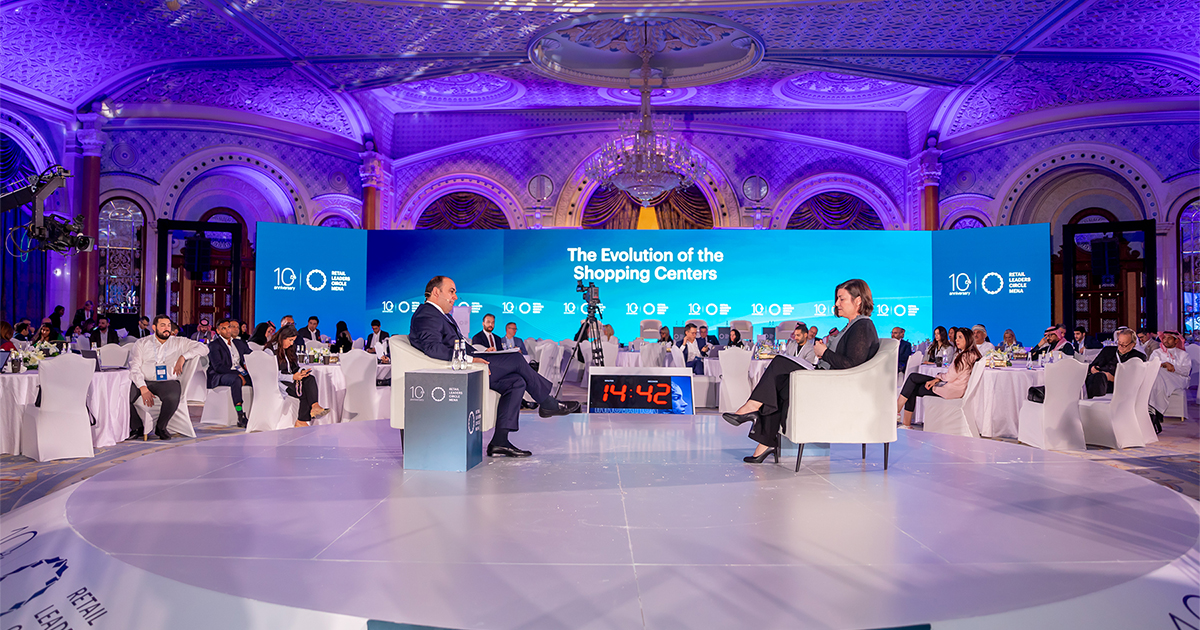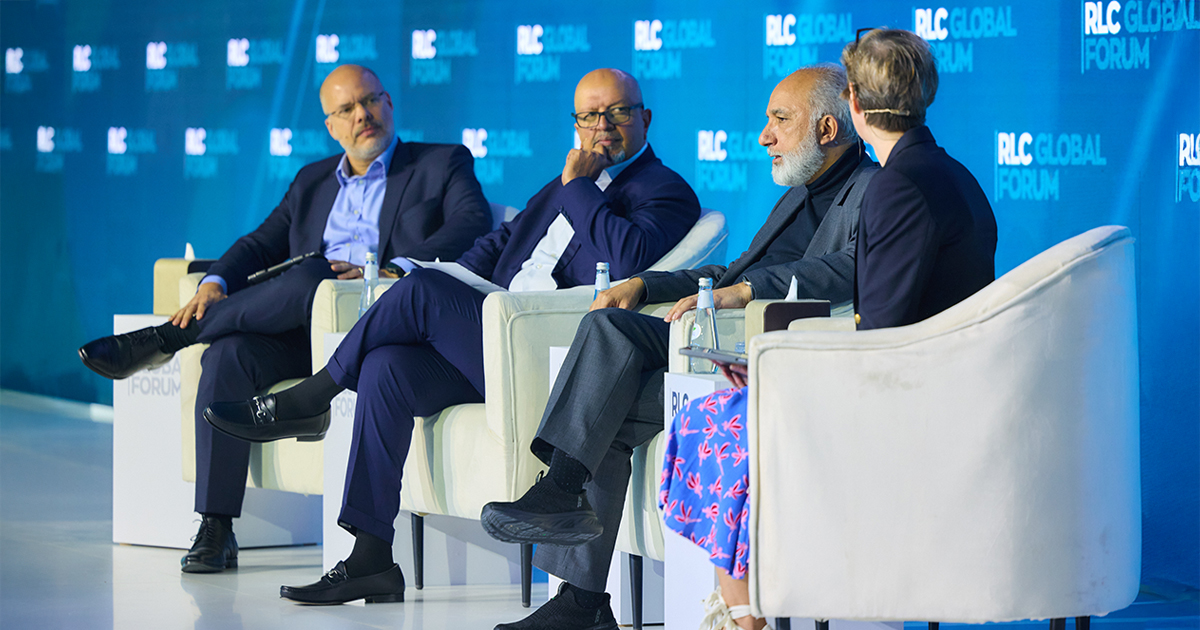Alison Rehill-Erguven, CEO of Cenomi Centers discussed with Panos Linardos, Chairman at Retail Leaders Circle retail real estate’s inherent dynamism and transformation.
Redefining Malls
Physical shopping centers possess an irreplaceable capability to create immersive experiences and foster community connections, distinguishing them from online platforms. These centers serve as venues for numerous human activities: hosting events, dining, family engagements, entertainment, educational pursuits, and wellness services. Such offerings highlight the critical role of physical retail spaces in maintaining relevance and enhancing consumer engagement by providing experiences unavailable digitally.
Furthermore, the concept of longevity emerges as a novel value proposition for shopping centers, suggesting that the social interactions they facilitate could contribute to an extended lifespan. This connection suggests retail real estate not just as commercial spaces but as integral components of human community and well-being, underlining the sector’s potential to enrich lives beyond transactions through the promotion of meaningful human experiences.
Global Shifts
Over the past 25 years, the retail real estate sector has undergone significant transformations influenced by regional trends and consumer behavior shifts. In the United States, from 2000 to 2010, the decline of department stores prompted a strategic repurposing of these spaces. This period focused on enhancing mall experiences by incorporating fine dining and grocery options, alongside efforts to densify shopping centers, maximizing the utility of every available area.
The evolution continued in Europe and Turkey, where different market dynamics due to growth cycles led to the expansion and, occasionally, the oversaturation of shopping centers. However, this phase was key to introducing sophisticated shopping venues in markets that previously lacked them. A significant shift was observed upon entering the Asian market, particularly China, from 2017 to 2022, where technological advancements had a profound impact. Innovations from major platforms like Alibaba and Tencent revolutionized shopping experiences, creating seamless omnichannel interactions that merged online and offline consumer activities. This era highlighted the crucial role of entertainment and food services, with some shopping centers dedicating up to 40% of their Gross Leasable Area (GLA) to dining options, reflecting the importance of food in attracting and retaining visitors.
Currently, a new growth cycle in the Kingdom offers a chance to apply learned global insights to future projects. The comparison between Saudi and Chinese consumers—highlighting their education, travel experiences, conservatism, and digital savvy—presents unique opportunities for tailoring retail real estate developments. This period underscores the sector’s ongoing need for adaptability, focusing on consumer-centric offerings, and leveraging technology to maintain relevance in a dynamically changing retail landscape.
The Role of Consumer Data
The strategic use of consumer data has become instrumental in tailoring shopping centers to contemporary consumer demands. This data-driven approach allows for a more targeted development strategy, ensuring that shopping centers remain appealing and relevant to their audiences.
Approaching next-generation experiences for flagship assets and projects within the growth pipeline relies heavily on the strategic use of research and consumer data. The focus is on understanding the evolving preferences and behaviors of consumers, including socio-economic shifts and spending patterns. Traditionally, the asset allocation was a 70/30 split between retail and a combination of food and beverage (F&B), entertainment, services, and lifestyle. This has shifted closer to a 60/40 ratio in response to data indicating increased consumer spending in F&B, entertainment, and health and beauty services, especially in a post-Covid world.
Sustainability as a Strategic Imperative
Sustainability initiatives have gained prominence within the shopping center industry, with developers embracing renewable energy, engaging in sustainability-linked financing, and aiming for environmental certifications. These efforts not only respond to global environmental concerns but also align with local objectives, such as the Vision 2030 in the Kingdom of Saudi Arabia, highlighting the sector’s commitment to responsible and sustainable development.
At the close of 2022 and the onset of 2023, Cenomi established a five-year strategic plan, centralizing sustainability as one of its core pillars. A significant advancement was marked by securing the largest renewable energy agreement to date, involving a partnership with Marubeni and Fast Energy. This deal facilitates the installation of renewable solar panels on shopping center roofs and car parks, along with the introduction of electric vehicle charging stations, signaling a pioneering step for both the organization and the Kingdom in adopting green energy solutions.
Furthermore, a substantial refinancing initiative incorporated a Sustainability Linked Loan (SLL), which sets specific environmental and social targets. One notable goal is increasing female leadership, reflecting a broader commitment to corporate responsibility and social equity. Additionally, the forthcoming Johara projects are being developed with an eye towards environmental sustainability, aiming for Gold LEED certification. This underscores a dedication to constructing spaces that meet high standards for eco-friendly design and operation.
The pace at which these initiatives have been adopted exceeds expectations, indicating a proactive rather than reactive approach to innovation and sustainability. The emphasis on educating the community about global citizenship through retail centers reflects an understanding of the influential role these spaces play in societal development.
Innovation and Customer Experience
Innovation within shopping centers extends beyond physical renovations to include digital experiences and omnichannel strategies. The integration of digital touchpoints and the exploration of partnerships with ecommerce platforms reflect an understanding of the need to provide convenience and enhanced experiences to consumers. Furthermore, the emphasis on creating next-generation experiences in flagship assets underlines the industry’s commitment to delivering spaces that exceed traditional shopping expectations.
Innovation is pursued through two primary avenues: enhancing digital experiences and embracing omnichannel strategies. A significant move of Cenomi towards omnichannel experiences involves a partnership with Trendyol, the largest ecommerce marketplace in Turkey, to offer a seamless online and offline shopping experience that aligns with the desires of 55% of Middle East consumers. This partnership reflects a proactive stance on incorporating ecommerce into the retail environment, facilitating options such as online purchasing, in-mall pickup, and returns, and exploring underutilized real estate for last-mile logistics.
Growth Strategy
The growth agenda for shopping centers encompasses a focus on lifestyle destination centers and flagship projects, incorporating elements previously unseen in the market. These developments aim to combine retail, entertainment, and technology in innovative ways, setting new standards for what shopping centers can offer. This strategy reflects an understanding of the need to continually evolve and adapt to remain competitive and relevant in the fast-changing retail landscape.
The ongoing evolution of shopping centers underscores the industry’s resilience and adaptability in the face of technological advancements, changing consumer behaviors, and environmental considerations.
 What we need to remember as shopping center real estate professionals is that we provide things that the internet will never be able to provide, and that’s our superpower.
What we need to remember as shopping center real estate professionals is that we provide things that the internet will never be able to provide, and that’s our superpower. 





